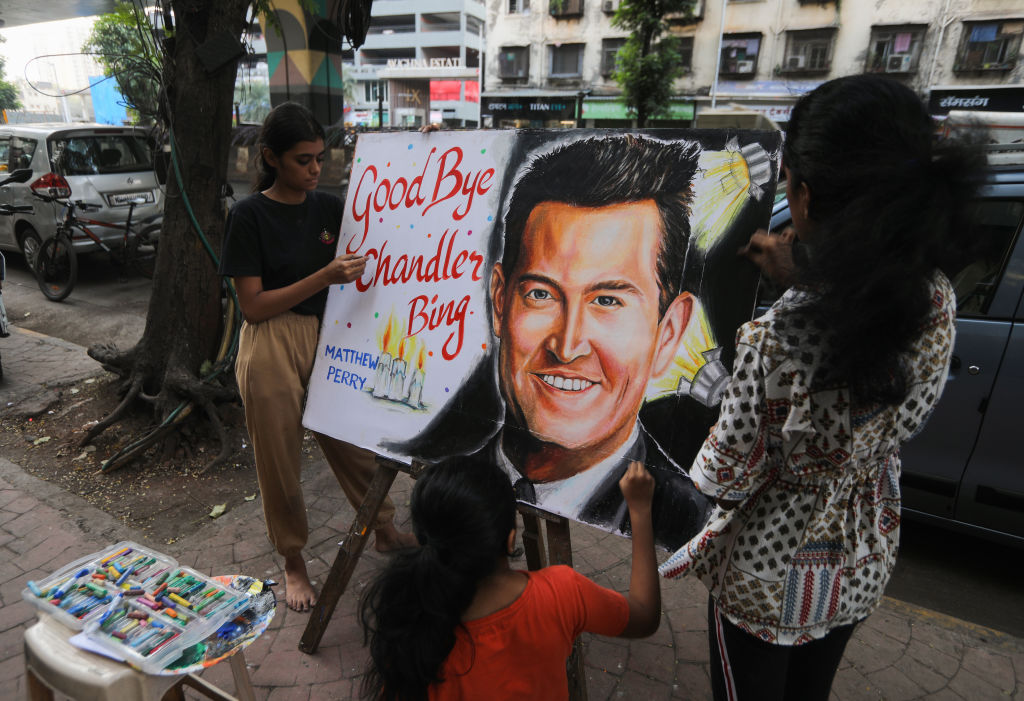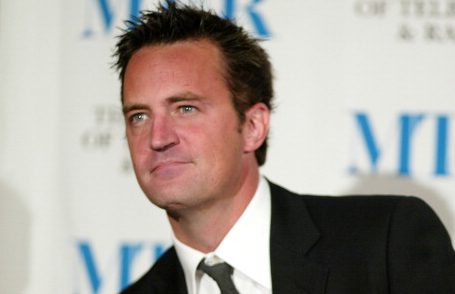
Robert Brustein, a giant in the theatrical world as critic, playwright, crusader for artistic integrity and founder of two of the leading regional theaters in the country, has died. He was 96.
Brustein died on Sunday at his home in Cambridge, Massachusetts, according to an emailed statement from Gideon Lester, the artistic director and chief executive of the Fisher Center at Bard University and a decades’ long family friend. Lester said he heard the news from Brustein's his wife, Doreen Beinart.
Known as a passionate and provocative theater advocate who pushed for boundary-breaking works and for classics to be adventurously modernized, Brustein founded both the Yale Repertory Theatre and the American Repertory Theatre at Harvard.
Some of the works he championed upset critics and playgoers unused to nontraditional productions, but he was unapologetic. “I know I'm out of step,” he told The New York Times in 2001. “I'm so out of step I'm almost in step.”
Get Boston local news, weather forecasts, lifestyle and entertainment stories to your inbox. Sign up for NBC Boston’s newsletters.
Even in his 80s, Brustein continued offering his opinions on everything from art to politics, lashing out at the Tea Party and describing the pain of breaking ribs on his own blog. He was a distinguished scholar in residence at Suffolk University, a professor of English emeritus at Harvard University and longtime critic at The New Republic.
Born in New York City, Brustein earned a bachelor’s from Amherst and a master’s and Ph.D. from Columbia. A Fulbright scholar, he taught at Cornell, Vassar and Columbia, where he taught drama. He was dean of the Yale School of Drama from 1966-1979 and during that time founded the Yale Repertory Theatre.
Yale Rep, a champion of new work, has produced several Pulitzer Prize winners and nominated finalists. Many of its productions have advanced to Broadway and together have garnered 10 Tony Awards and more than 40 nominations.
“The goal is to try and have people in the audience take away something that lasts and will haunt them, be it either a subject for debate or of their dreams,” he told the Los Angeles Times in 1997. “They'll have an unresolved experience.”
After a painful, highly publicized dismissal from Yale, Brustein in 1979 switched to Harvard, where he taught English and founded the American Repertory Theatre in 1980. Then in 1987, he founded the Institute for Advanced Theatre Training, a two-year graduate program. He retired as artistic director from A.R.T. in 2002 but continued serving as its founding director.
A.R.T. has grown into one of the country’s most celebrated theaters and the winner of numerous awards, including the Tony Award and the Pulitzer Prize. In 2003, it was named one of the top three regional theaters in the country by Time magazine.
Over the course of his long career as director, playwright, and teacher, Brustein aided the artistic development of such theater artists as Meryl Streep, Christopher Walken, Cherry Jones, Sigourney Weaver, James Naughton, James Lapine, Tony Shalhoub, Linda Lavin, Adam Rapp, William Ivey Long, Steve Zahn, Wendy Wasserstein, David Mamet and Peter Sellars.
At both Yale Rep and A.R.T., Brustein told The Boston Globe in 2012, he embraced popular theater with a nationalistic streak: “We were trying to liberate American theater from its British overseers. We were trying to find an American style for the classics,” he said.
“I was looking for the energies of popular theater applied to traditional work. I was also looking for new American plays. This was a very important function of ours, to encourage and develop new American playwrights.”
Brustein’s own full-length plays include “Demons,” “The Face Life” and “Spring Forward, Fall Back” and “Nobody Dies on Friday,” based on the real-life relationship between Lee Strasberg and his student Marilyn Monroe.
His work has been produced at the Vineyard Playhouse on Martha’s Vineyard, at Theater J in Washington, D.C., and the Abington Theatre in New York. “Playwriting is not so much a craft as an obsession,” he once observed.
His trilogy on the life and work of William Shakespeare includes “The English Channel,” which was nominated for a Pulitzer Prize; “Mortal Terror”; and “The Last Will,” a witty play which takes place inside a tavern on the eve of Shakespeare’s theater career and presents the young poet as an intellectual kleptomaniac. Brustein published his first book on Shakespeare, “The Tainted Muse: Prejudice and Presumption in Shakespeare and His Time,” in 2009.
Brustein was a staunch believer that theater should be first and foremost an art form, not just a political platform. He once criticized the African-American playwright August Wilson for declaring that Black people should not participate in colorblind casting but should form their own separatist companies. The pair then aired their differences in 1997 in a high-profile confrontation at New York's Town Hall.
Brustein, a tall man with a deep voice, also wrote “Shlemiel the First,” based on the stories of Isaac Bashevis Singer and set to traditional klezmer music. The light, absurd comedy, which gently mocks the lavishness of other musicals, premiered in 1994 at the American Repertory Theatre and was close to making it to Broadway. It was revived in 2011 by Theatre for a New Audience.
“I think the greatest theater is that which combines the low and the high,” he told the Globe. “One thing I can’t stand is the middle.”
His short plays include “Poker Face,” “Chekhov on Ice” and “Airport Hell.” His other books include “Revolution as Theatre,” “Letters to a Young Actor” and multiple volumes of his essays and criticism.
He won multiple honors, including the George Polk Award for Journalism and an award for distinguished service to the arts from the American Academy of Arts and Letters. He was also inducted into the Theatre Hall of Fame. In 2010, he was awarded the Medal of Arts by President Barack Obama at the White House and hailed as “a leading force in the development of theater and theater artists in the United States.”
He is survived by his wife, who ran the human rights film program at the Carr Center for Human Rights Policy at the Kennedy School of Government; and a son, Daniel. His first wife, the actress Norma Brustein, died just after he was let go from Yale.
Brustein was asked in 2012 what he thought of the current state of American theater and said tickets were too expensive and the work often failed to find a deep resonance.
“I love entertainment, but entertainment has got to be a serious effort to investigate the American soul through its theater. Novelists understand this, poets understand this, and for a while the playwrights really understood it,” he told the Globe. “We don’t have that anymore. And if we do, it’s not making it on the stage.



